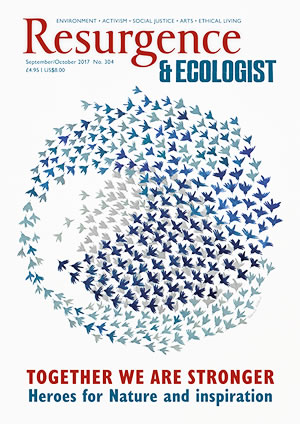A few years ago a survey of British adults aged 16–23 found that four in ten were unable to correctly identify that milk comes from cows. A few had even suggested that it comes from wheat. The rest of us may be better informed, but most still happily eat pigs, cows and other farmed animals without a second thought.
We don’t think or realise we are eating a dead pig, a cow or a cow’s by-products. Instead we eat brands and a host of words that make up the ever-changing food language of humans, be that lasagne, cottage pie or Ben & Jerry’s ice cream. It would probably be fair to say that we have more connection with our food’s packaging than with the animals used to produce it.
What if we knew and thought more about the animals we ate? That is the question Barbara J. King poses in her book Personalities on the Plate as she takes us on a journey through the scientific thinking on animal behaviour, emotions and personalities.
This is not a vegan polemic. King herself still eats fish and says her hope is only that we should eat less meat and fewer livestock products. Humans may have been locked in by evolution to be predators of other animals, but we can gain the necessary nutrients and sustenance without them, she says. She hopes that understanding and knowing about animals and making connections with them will change our dietary habits – connections that “are easily obscured in a world where most of us encounter the animals we eat as shrink-wrapped products in a grocery store”.
Ultimately, as King knows, the barrier is just as much about culture as about knowledge and understanding. Most of us do not eat chimpanzees, but the reason isn’t only that many of us live far from regions where chimpanzees naturally dwell. Likewise, in the UK we have grown up with the dog as “man’s best friend”, a companion and a household pet. Yet millions of dogs are boiled alive or electrocuted every year as food animals in parts of Asia. Chimpanzees and dogs are shielded from our consumption by our perspective on who they are: a product of the culture we have grown up in and are surrounded by.
Valuing animals comes from reconnecting with how our food is produced – blood, death and all – and also reappraising our everyday cultural norms. That will take time. And until that society is dominant, the minority vegan or low-meat eaters like Barbara King face a difficult task.






